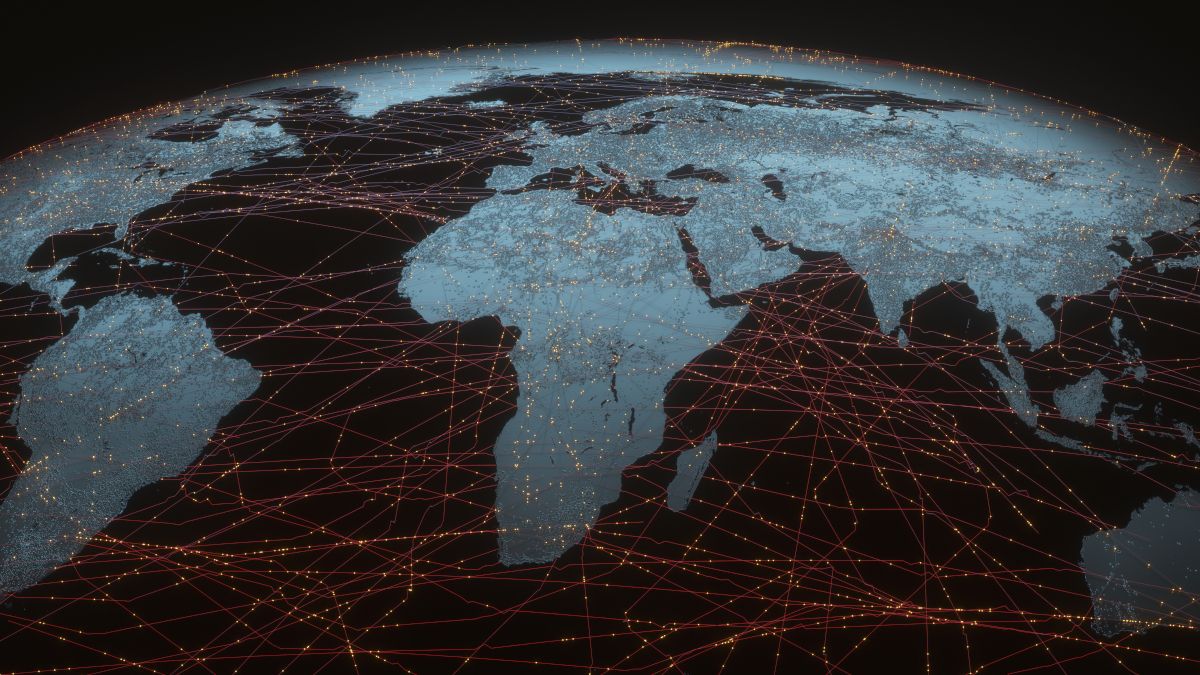Key Takeaways
Sites load fast regardless of geographical location thanks to CDNs, or content distribution networks. These networks of servers duplicate data across the globe to make websites available without delay no matter where you are.
If you have an idea of how the internet works, you may wonder why sites hosted on servers far away from you load just as quickly as those hosted near you. After all, it stands to reason that a site in Australia would load slower for people in the States than a US-based site would. So why doesn't it?
Distance Matters
In the Web 1.0 era, it often was the case that websites in other parts of the world were just slower. it wasn't always too bad, but you could definitely tell it took a few seconds longer if you were in Europe checking out hotel bookings in India or the site of a museum in Canada. If a site was under heavy load, you could wait for 10 or even 20 seconds, at times.
This was because the information you were sending and receiving had to travel longer, thus delaying your connection. You could even replicate this experience right now by using a VPN. These services reroute your connection to anywhere in the world, and badly slow down your speeds while doing so.
There's very little you can do about this. Though data may seem intangible, it's a very real thing and just like light or sound needs time to get from one place to another. By connecting to a server on the other side of the world, you're increasing the latency of the connection (the time it takes a server to respond) besides reducing speed.
However, that doesn't explain why nowadays, outside of VPNs, it's extremely rare for you to come across this issue. Australian sites are still on the other side of the world if you're in the US, but if you wanted to visit the site for an Australian airline like Qantas it loads as fast as any other site.
Fixing Load Times
It turns out that in the intervening twenty years of loading websites we've learned a trick or two. The most important is the creation of networks of servers scattered across the world that duplicate information, meaning you always have a server relatively near you for the sites you want to visit.
Called content distribution networks or CDNs---though some people claim that "D" in the middle stands for "delivery"---these networks make it so you always have a copy of your site at hand. Handily enough, this also means that any site using a CDN is automatically backed up, as one server failing means the others in the network can take over for it.
It stands to reason that it's the big tech giants that use these CDNs---in fact, even during Web 1.0 large companies' sites were always quick to load as they had copies of their sites across the world. No matter if you're using the Google search engine, logging into Facebook, or checking up on Twitter, these sites will load in a flash regardless of location.
CDNs for Everybody
However, it's not just the big players that have access to CDNs, and even if you're just setting up a simple portfolio site or something you can use a CDN. No-code website builder Wix has its own CDN, for example, as do many other web hosts.
One of the biggest CDNs in the world is Cloudflare, and companies large and small use it all the time to make sure their sites load fast for anybody, anywhere. However, it's still not the case that every host offers a CDN, or at least something like it. If you're shopping for web hosting, this is something you may want to keep in mind, as it could affect the experience for visitors.
It's also one of the main reasons why hosting your own website isn't always a good idea: unless you also invest in the services of a CDN, your website could take a long time to load for international visitors.
Thank a CDN
Though they're mostly invisible for regular people, CDNs are an absolutely vital part of today's internet. Without them you'd spend a lot of time waiting for sites to load, with all the issues that would bring with it. Imagine remote workers having to wait a few seconds each time they load a new web page, or even just scrolling Facebook without a server nearby.
Without CDNs, we'd likely not have a Web 2.0, at least not as we know it. Even in a possible Web 3.0 scenario, where the internet would be a lot less centralized, CDNs would likely play a part. These networks aren't going anywhere, at least not any time soon.

